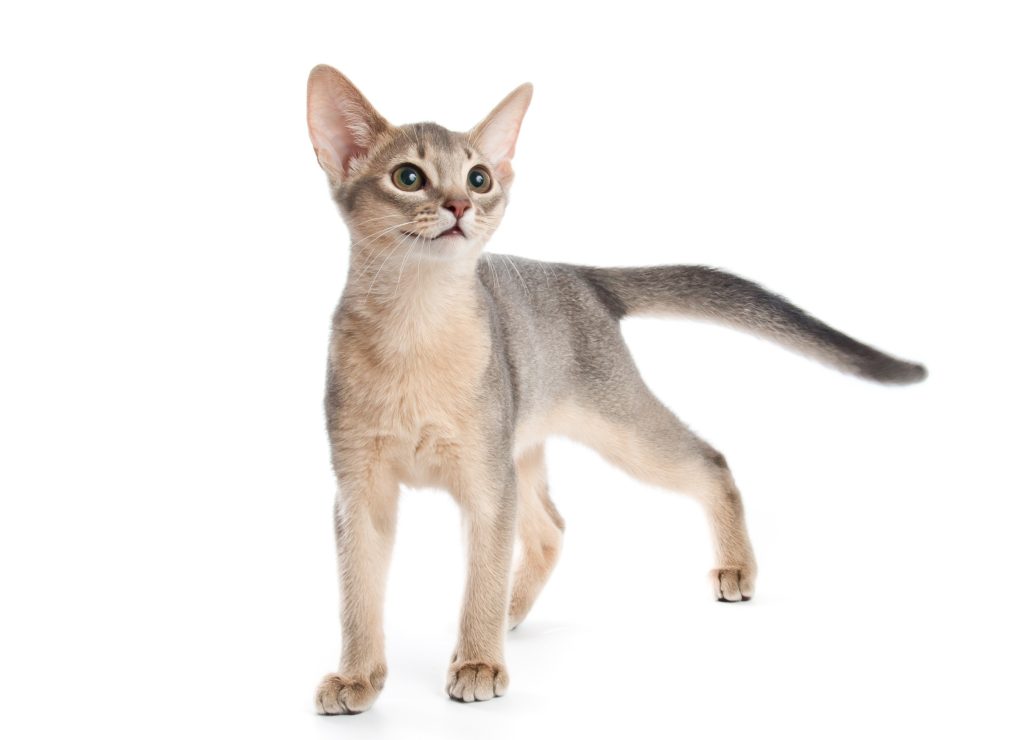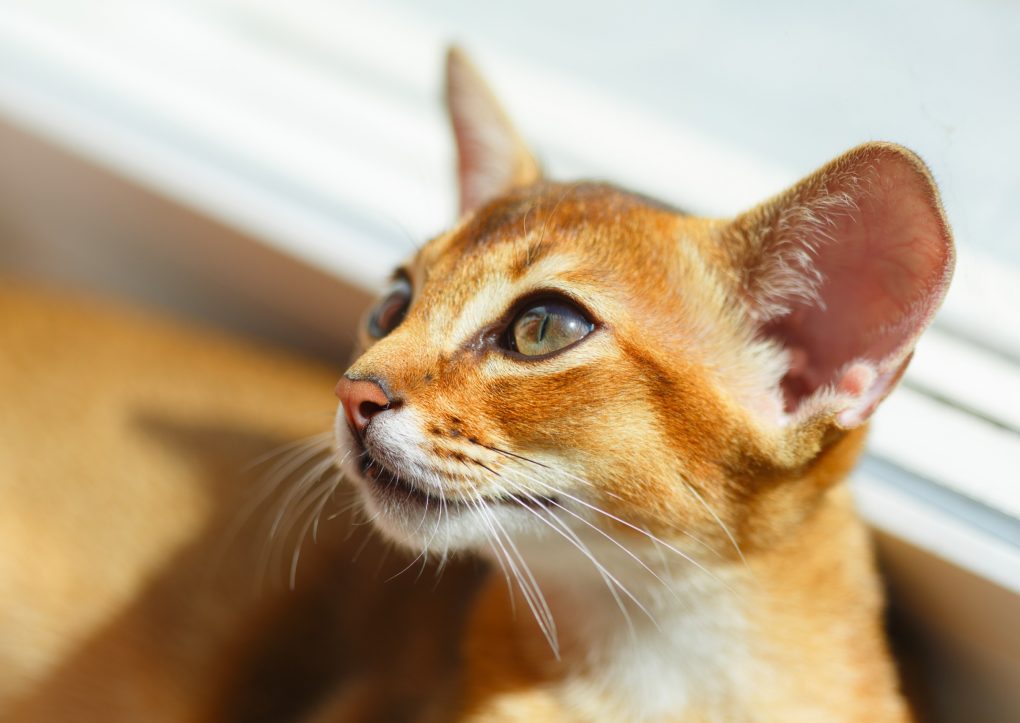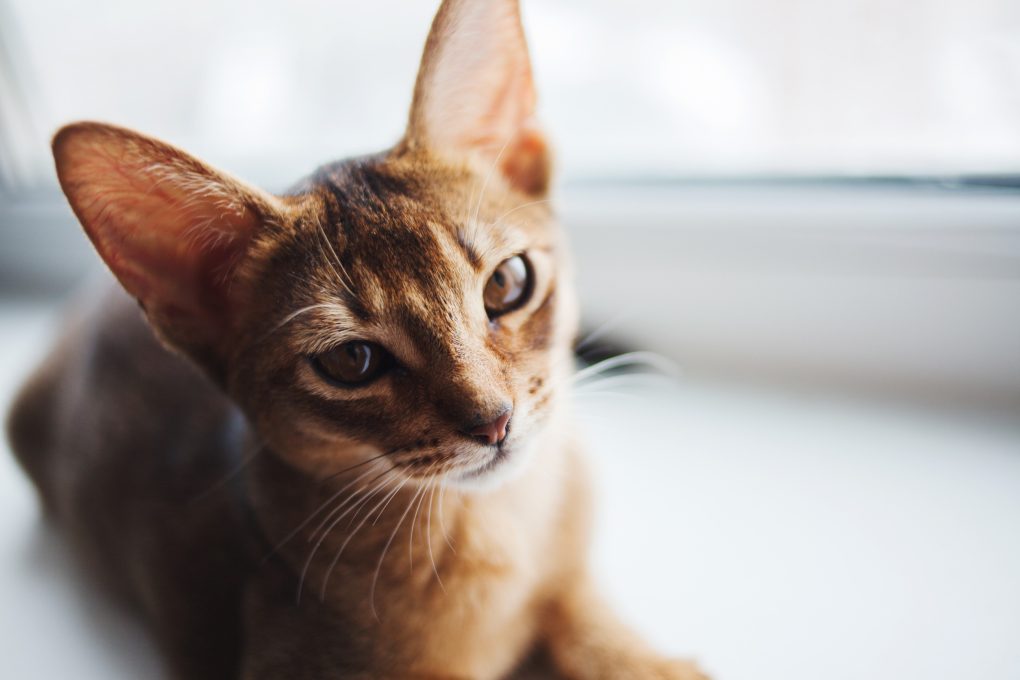Are Abyssinian Cats Vocal: Get to Know Your Vocal Abyssinian Cat
Yes, Abyssinian cats are known to be quite vocal. They make various sounds, such as chirps, trills, and even meows. They are also very expressive with their body language, which can include tail-twitching, ear-flicking, and leg-rubbing. Overall, they are considered a very social and interactive cat breed.
Table of Contents
Abyssinian Cat’s Meow
Abyssinian cats are known for their high level of vocalization. Some experts believe Abyssinian cats may be more vocal than others because of their larger larynx (voice box). This could make them capable of producing more sounds with their vocal cords, making them more likely to communicate their feelings and desires to their owners.


Another reason Abyssinian cats may be more vocal than other cats is that they often yowl and howl when happy or excited. Some Abyssinian cats will also meow frequently as a form of communicate owners. The amount of vocalization a cat makes depends on its personality and mood, so it’s not an indicator of how intelligent or sensitive the cat is.
If you find your cat’s meowing excessive or sudden, it’s best to consult a veterinarian to rule out any underlying medical issues.
Reasons Why Abyssinian Cats Are Meowing
Some Abyssinian cats may meow because they enjoy the sound of their voice and want to share it with others. Regardless, it’s essential to acknowledge and provide an environment where cats can feel safe and secure. There are also several reasons why Abyssinian cats may meow, including:
- Hunger: Like all cats, especially kittens, Abyssinians will meow when they are hungry and want to be fed, according to WebMD.
- Attention: Abyssinians are known for being social and interactive cats. They may meow to get the attention of their owners or other household members.
- Boredom: Abyssinians are active and playful cats and may meow if they are bored and want to play.
- Stress: Abyssinian cats may meow more if they feel stressed or anxious. This may be due to changes in the environment or routine or due to a medical condition.
- Illness: Cats may meow more frequently if they are feeling ill or experiencing pain.
- Communication: Cats meow to communicate with their owners and other cats. They may be trying to convey a message or express an emotion.
- Age-related issues: Crying can also signify age-related issues, such as cognitive dysfunction or senility.
- Inappropriate elimination: Crying may also be a sign of a behavioral issue, such as inappropriate elimination.
Tips to Make Abyssinian Cats Stop Meowing


- Address their needs: Make sure your cat has access to food, water, and a clean litter box. Also, please provide them with plenty of toys and playtime to keep them mentally and physically stimulated.
- Establish a routine: Cats thrive on routine, so establish a consistent feeding, playtime, and bedtime schedule.
- Provide a comfortable environment: Ensure your cat has a warm, comfortable place to sleep and relax. Make sure they have access to sunny spots and cozy hideaways.
- Ignore the behavior: If your cat is meowing for attention, try to ignore it and only interact with them when they are quiet.
- Consult with a veterinarian: If your cat’s meowing is excessive or sudden, it’s best to consult with a veterinarian to rule out any underlying medical issues.
- Provide an interactive feeder: If your cat is meowing because they are bored or hungry, you can get them an interactive feeder to keep them busy while they eat.
- Understanding the reasons: There is no one-size-fits-all answer to solving the problem, but understanding the reasons behind the meowing can help you find a solution that works best for your cat. If you’re looking for ways to stop your cat from meowing all the time, consider taking steps to address the underlying issues causing them to vocalize so often.
Benefits of Having a Vocal Abyssinian Cat
- Enhanced communication: A vocal cat can help you understand its needs and wants better. For example, if your cat meows when they want food or attention, you will be able to respond to its needs more quickly and effectively.
- Increased socialization: Abyssinian cats are known to be social and interactive cats. A vocal cat can help to increase socialization and bonding with their owners.
- Increased companionship: A vocal cat can provide a sense of companionship and comfort for their owners. The sound of a cat meowing can be soothing.
- Increased entertainment: Some people find the vocalizations of cats entertaining and amusing. A vocal Abyssinian cat can provide a source of entertainment for their owners.
- Increased awareness: A vocal cat can help to alert their owners to potential issues, such as an open door or window or the presence of strangers or other animals.
Disadvantages of Having a Vocal Abyssinian Cat


- Noise disturbance: Constant meowing or other vocalizations can be disruptive and disturbing, particularly for people who are sensitive to noise or have neighbors nearby.
- Lack of sleep: A vocal cat can make it difficult for its owners to sleep, mainly if it is active at night or early in the morning.
- Difficulty training: Some cats may be more challenging because they are very vocal and respond poorly to traditional training methods.
- Increased stress: Constant meowing or other vocalizations can be stressful for the cat and its owners, particularly if it expresses distress or anxiety.
- Attention-seeking behavior: Some cats may meow excessively to seek attention, which can lead to frustration and exhaustion for their owners.
- Medical issue: Some cats may meow excessively due to underlying medical conditions, such as feline hyperthyroidism or dental issues. In these cases, it is essential to consult a veterinarian to rule out any underlying medical issues.
